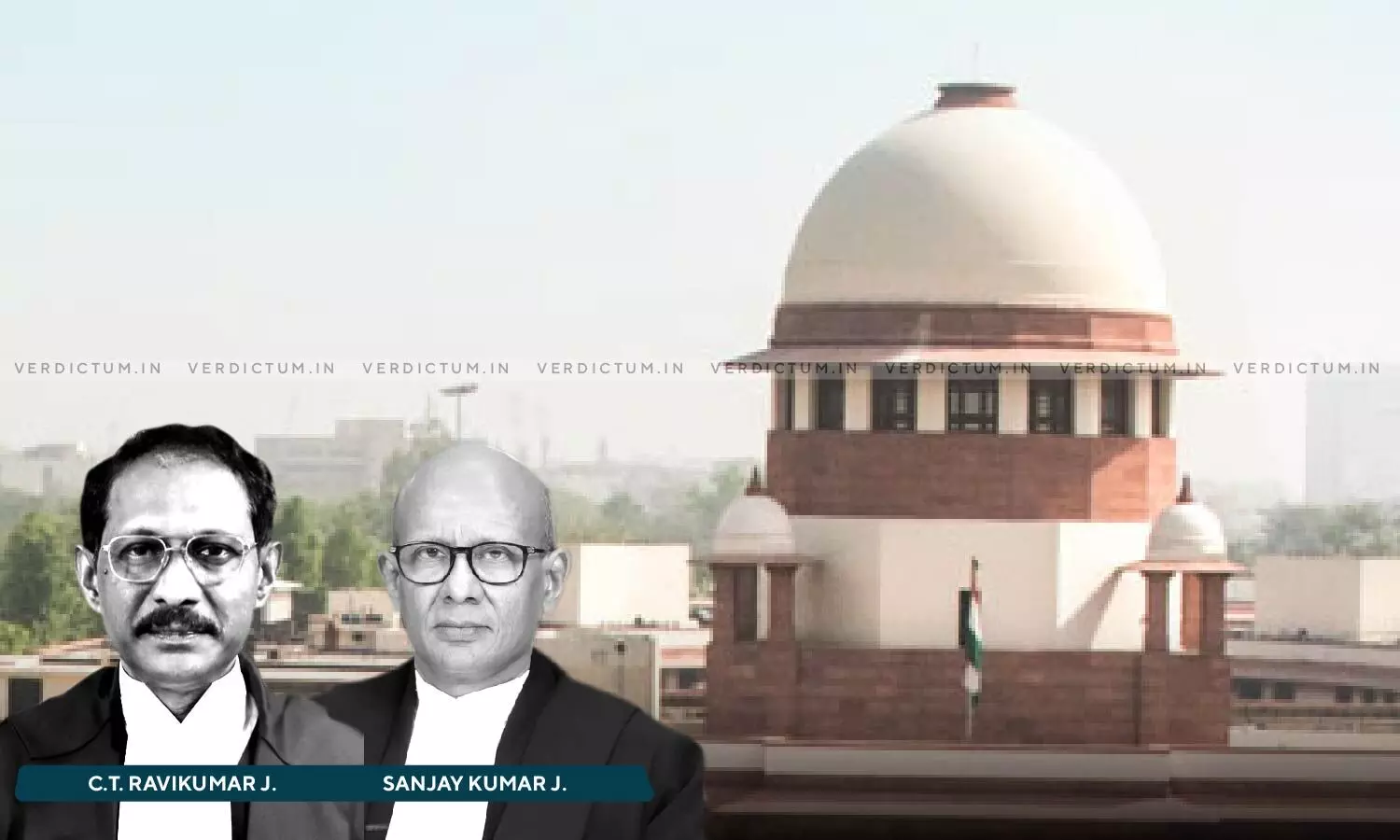
Compromise Between Parties Not A Ground To Terminate Investigation By Quashing FIR: SC In School Student’s Sexual Assault Case
 |
|The Supreme Court in a case involving sexual assault of a student in school, emphasised that the compromise between the parties in such cases cannot be a ground to terminate investigation by quashing FIR.
The Court was dealing with a criminal appeal preferred against the order of the High Court by which the FIR was quashed against the accused.
The two-Judge Bench comprising Justice C.T. Ravikumar and Justice Sanjay Kumar observed, “… the impugned order dated 04.02.2022 of the High Court in S.B.C.R.M.P. No.1348/2022, quashing the FIR No.6/2022 dated 08.01.2022 and all further proceedings pursuant thereto solely on the ground that the accused and the complainant had settled the matter, invites interference. We have no hesitation to hold that in cases of this nature, the fact that in view of compromise entered into between the parties, the chance of a conviction is remote and bleak also cannot be a ground to abruptly terminate the investigation, by quashing FIR and all further proceedings pursuant thereto, by invoking the power under Section 482, Cr. P.C.”
The Bench remarked that when an incident of the such nature and gravity allegedly occurred in a higher secondary school, that too from a teacher, it cannot be simply described as an offence which is purely private in nature and have no serious impact on the society.
AOR Vikas Jain represented the appellants while Senior Advocate R. Basant and AOR Aviral Saxena represented the respondents.
In this case, an FIR was registered by the victim’s father against the accused under Sections 354A, 342, 509, and 504 of the Indian Penal Code (IPC); Sections 7 and 8 of the Protection of Children from Sexual Offences Act, 2012 (POCSO Act); and Sections 3(1)(r), 3(1)(s), 3( 1)(b), and 3(2) (vii) of the Schedule Cast and Schedule Tribe (Prevention of Atrocities) Act, 1989 (SC/ST Act). The allegations were that in 2022, when the victim child, then a student of Class XI in Higher Secondary School was alone in the classroom, the accused who was a teacher, came there. It was further alleged that after gazing through the window to ensure that nobody is there near to the classroom, he reached behind her and started patting her cheeks and soon put his hand inside bodice and rubbed her breast. In anguish and anger, she got up and ran away. The accused allegedly followed to stop her and hurled abuses with ugly words like ‘dedh Chamar’ etc.
Thereupon, she sat down near the gate and beseeched the teachers for help, but it was of no avail. They persuaded her to be tight-lipped about the incident. Though, the Principal came to know about it, he only took her signature on a blank paper. Meanwhile, one teacher came to the residence of the victim’s father and took his wife to the school telling that her daughter was not feeling well. Thereafter, an FIR was lodged but the accused compromised the matter with the victim’s father. Thereupon, the accused filed a petition before the Rajasthan High Court seeking quashment of FIR and all further proceedings thereon. The High Court, despite the opposition by the public prosecutor, allowed the said petition and quashed the FIR and all further proceedings in pursuance thereof. Hence, the case was before the Apex Court.
The Supreme Court in the above regard, noted, “This Court held that whether an FIR is quashable or not would depend upon the facts and circumstances of each case and while considering that question, the Court has to apply its mind to (i) whether the crime is one against the society or against an individual alone, nature of the dispute, (ii) seriousness and how the crime was committed (iii) whether offence(s) is one under a special statute (iv) stage of proceedings and how the accused manged to compromise with the complainant.”
The Court further took note of the fact that the victim was then a student of Class 11th in the Higher Secondary aged 16 years and the statement annexed to the FIR of the complainant i.e., her father itself would reveal that he complained about the pressure from the accused to restrain him from lodging report. It added that the compromise was entered immediately thereafter and despite the said position, the Court has not chosen to consider whether the compromise entered into between the parents and the accused could be acted upon or not, in the interest of justice, taking note of the serious allegations levelled against the accused.
“Despite giving such statement in the complaint, within a couple of weeks, the accused managed to compromise the case with the 4th respondent and his wife. … the power under Section 482, Cr. P.C. could not be used to quash proceedings based on compromise if it is in respect of heinous offence which are not private in nature and have a serious impact on the society”, it elucidated.
Furthermore, the Court directed that the FIR and criminal proceedings be proceeded with against the accused, in accordance with law.
Accordingly, the Apex Court allowed the appeal and quashed the impugned order.
Cause Title- Ramji Lal Bairwa & Anr. v. State of Rajasthan & Ors. (Neutral Citation: 2024 INSC 846)
Appearance:
Appellants: AOR Vikas Jain, Advocates Shrawani, and Hardik Jayal.
Respondents: Senior Advocate R. Basant, AORs Aviral Saxena, Milind Kumar, Sarad Kumar Singhania, Anuj Bhandari, R. H. A. Sikander, Advocates B.S. Rajesh Agrajit, Divyank Panwar, Jyoti Rana, Priya Nagar, Gaurav Jain, Rajat Gupta, Disha Bhandari, Anjali Doshi, Jatin Bhatt, Sanawar, Harshit Gahlot, Kshitij Singh, Nujhat Naseem, Sadiya Sultan, and Manu Krishnan.